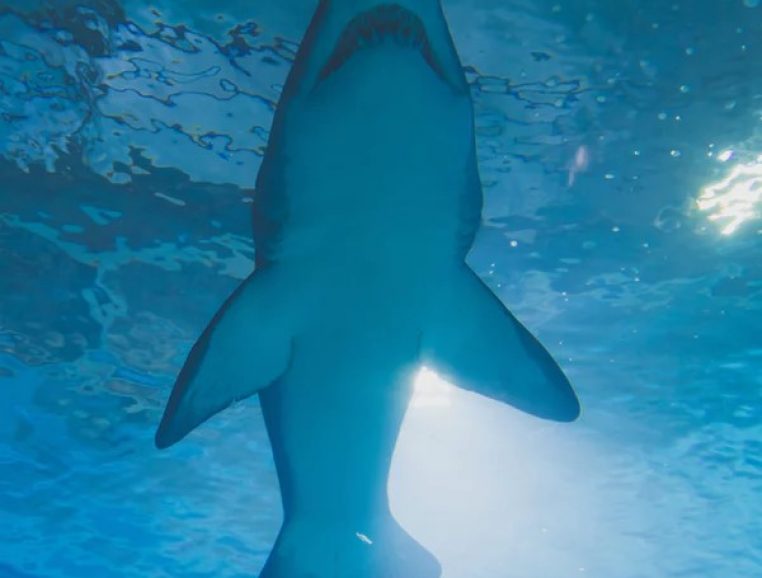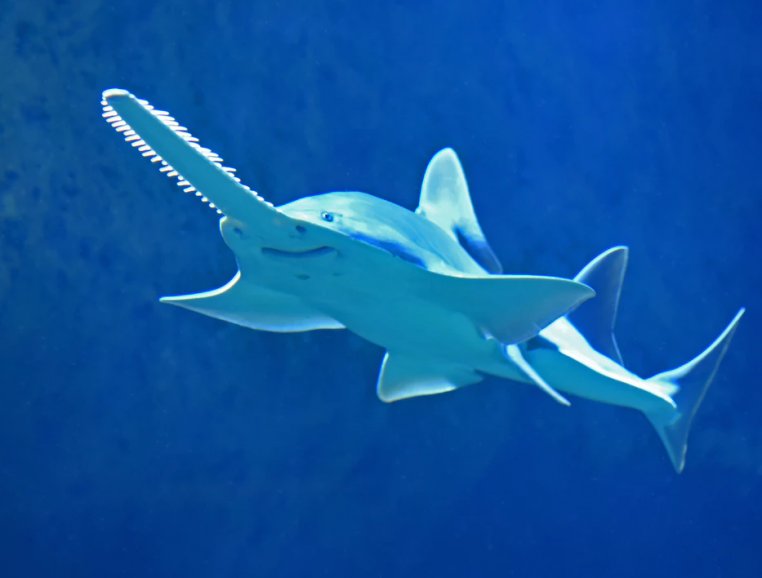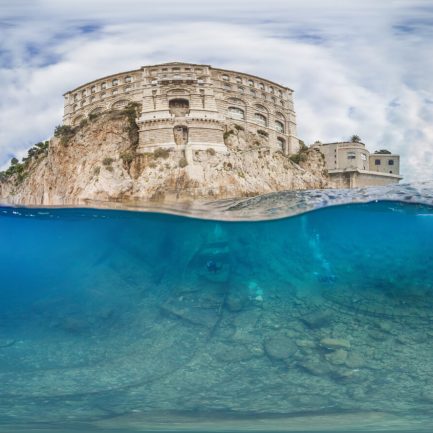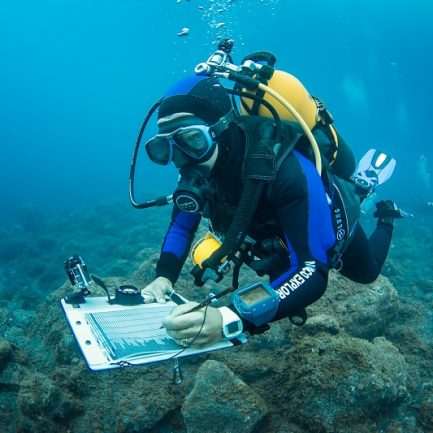Men or sharks: who have the biggest jaws in the sea?
- Home
- Actualités
- Human and Shark Tribune
Symbol of a wild and rebellious nature, the shark represents the limit of our domination of the seas, a frontier that some people are determined to push back to the abyss. In this 2013 op-ed, Robert Calcagno questions the relationship between humans and sharks.
Opinion column by Robert Calcagno, Director General of the Oceanographic Institute, Fondation Albert I, Prince of Monacopublished in the Huffington Post on January 22, 2013.
A matter of reputation
In our Western culture, sharks have always been given the most detestable labels. They have the unenviable status of scapegoats and have been blamed for all the difficulties encountered by man in his conquest of the marine environment. Legend has it that they devoured shipwrecked sailors when the first boats headed out to sea, ate airplane pilots when the first paddleboats were found at sea, and were even disloyal competitors of fishermen when the catch proved insufficient.
No accusation was spared them, not even that of manhunters. Since the film “Jaws” (1975), it seems to be accepted that sharks have been stalking swimmers, surfers and windsurfers right up to the edge of the beach. When an accident occurs, it doesn’t take much for the man, in an outpouring of hatred, to demand justice.
What marine animal today can claim to match the media coverage of the shark or enjoy such a loathsome reputation? At no time, however, does the man question himself. He never establishes a correlation between the increase in the number of attacks and the boom in boating activities, which considerably increases the probability of an encounter between man and beast. For of the two, which is the one who invades the other’s territory?


The danger is elsewhere
Symbol of a rebellious nature, the shark represents the limit of our domination of the seas, a frontier that some people are determined to push back to the abyss. While the oceans are today appreciated as one of the last spaces of freedom, claimed by water sports and underwater enthusiasts, man seeks to introduce control and mastery. What sense would there be in a freedom that is exercised in a polite and sanitized world?
To focus on the domination of nature in this way is to ignore the origin of the danger, for it comes much more from within those lands that we think we control. While sharks kill less than a dozen people a year worldwide, collapsing sand tunnels in the United States alone cause that many deaths. In France, nearly 500 people die every summer from accidental drowning, including more than 50 in swimming pools. Not to mention the incomparably higher risk of accidents on the beach road! How would the total eradication of sharks have a positive effect on these statistics?
Since their appearance nearly 400 million years ago, sharks have escaped all extinction crises, surviving, for example, the dinosaurs. Today, however, man is making a rare effort to make them disappear. Specifically fished, most often for their fins, or caught in the great trap of global overfishing, more than 50 million of them disappear each year. Most known shark stocks have declined by 80-99% since industrial fishing began in the mid-20th century. With no qualms about it, or even with the satisfaction of getting rid of competitors or annoyances, man is reducing the oceans to vast pools.
Accepting a wild sea
Some island cultures could have enlightened us. Nurturing a completely different relationship with the sea, they respect sharks as the embodiment of a nature that gives and receives, that feeds and kills, without any malice and sometimes even with foresight, weighing souls to select victims and miracles.
The West, for its part, preferred to break the harmony and opt for confrontation. We are not aware that sharks play a key role in maintaining the balance and vitality of marine ecosystems by controlling the lower levels of the food pyramid and selecting weakened prey. Locally, the disappearance of sharks has already led to significant upheavals: an increase in the number of rays, which have wiped out the century-old scallop beds on the northeast coast of the United States, and the development of octopuses, which have feasted on New Zealand lobsters. On a large scale, the intensive traffic in these animals is leading us headlong into the unknown. We are certainly moving towards absolute domination, but domination over impoverished and barren oceans.
Our indiscriminate fight against the sharks is a testament to the poor life lessons learned so far. By wishing to push back the limits of the natural environment and the last great wild animals, we refuse any cohabitation which would not be based on domination. Accepting nature means accepting that some spaces escape our rules and requirements. Beyond questioning ourselves about the oceans, let’s question ourselves about the people we want to be…
Is it not urgent to show altruism by demonstrating that our freedom can also stop in front of that of other species which, good or bad, useful or useless, have for first characteristic to share our blue planet? It is at the price of this change of philosophical posture that humanity will be able to find balance and serenity.










